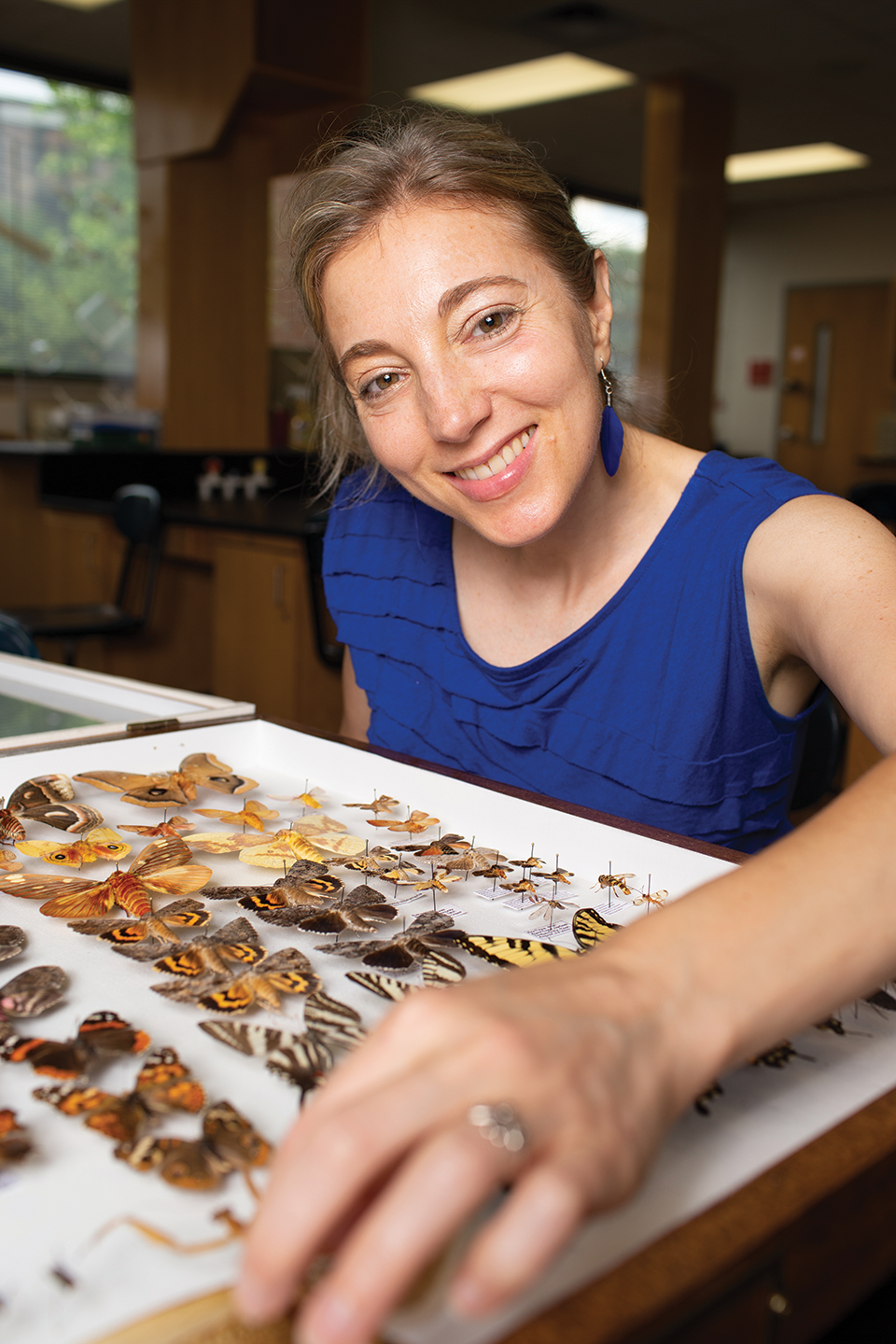

Amy Wright (photo by Taylor Slifko)
Amy Wright grew up on a family farm in the Wytheville, Virginia. She earned her B.A. from the University of Virginia, her M.A. from the University of Colorado, Boulder, and her Ph.D. from the University of Denver. She lives in Clarksville, Tennessee, where she teaches at Austin Peay State University and is the Senior Editor of “Zone 3” journal.
A! Mag: Do you remember the first poem you wrote? If so, tell us about it and why you wrote it.
Amy Wright: The title escapes me, but it was about my grandmother, Helen Johnstone, who died when I was 7. Her presence remained active in my life thanks to stories my mother shared. Poetry seemed the best medium to commemorate her because she had given me a book of poems that I treasured, Robert Louis Stevenson’s “A Child’s Garden of Verses.”
A! Mag: How did you get interested in writing poetry?
Wright: Emily Dickinson’s “I Never Saw a Moor.” Though later I would appreciate the difficulty of her poems, I was initially drawn to their music, which made them seem easy and fun to write.
A! Mag: What poets serve as inspiration?
Wright: Kiese Laymon is better known for his prose, but his poem “And Blue” reminds me that a poem is a momentum machine. Diane Seuss charges me to raise my voice, setting the highest bar for courage in “frank: sonnets.” More often, visual artists inspire poems, but David Baker’s poems can read like films. In “Whale Fall,” he illustrates the decades-long process by which a fallen whale becomes “marine snow.” Too, that conversion of matter illustrates the creative process, which is part scavenging and part letting go.
A! Mag What subjects are inspiration for your poetry?
Wright: If I’m learning, I’m motivated to share what I’ve found, but biology, physics and astronomy are recurring sources. Recently I’ve been reading about how ocean acidification threatens to dissolve clamshells, which expand like our bones as they grow. Their ridges are often compared to tree rings, which makes me wonder how humans mark growth. I know many pencil doorframes with height measurements, but what about emotional or spiritual maturity? Perhaps that is the work of poetry.
A! Mag: What poetic forms do you tend to use?
Wright: I wrote a book of sonnets, loosely obeyed. The bounds of form like villanelles and haiku appeal to me, but all my poems generally break into prose.
A! Mag: What is the importance of poetry in our world today?
Wright: We are evolving culturally to address various global crises. Poetry encourages far-reaching comparisons and can make points of connection across seas and plains of indifference.
A! Mag: What are some publications where your poetry can be found?
Kenyon Review, Appalachian Review, Smartish Pace and Still: The Journal.
A! Mag: What awards have you received?
Wright: “Paper Concert” won the Nautilus Gold Award for Lyric Prose. I’ve also won essay contests sponsored by London Magazine and Quarterly West and fellowships to the Kenyon Review Writers Workshop and the Virginia Center for the Creative Arts.
Having recently had the opportunity to co-edit the Virginia volume of “The Southern Poetry Anthology” series, I developed a great appreciation for the many diverse voices that have emerged and are emerging from the Commonwealth.
Wash
The hair, the eyes, the back
of the knees magnetize grit
spit won’t cleanse, or creek cut
without detergent, yet slick
enough silt scrubs fine lines
smooth as a butter pat
of water or guppies that accept
and reflect every cloudprint.